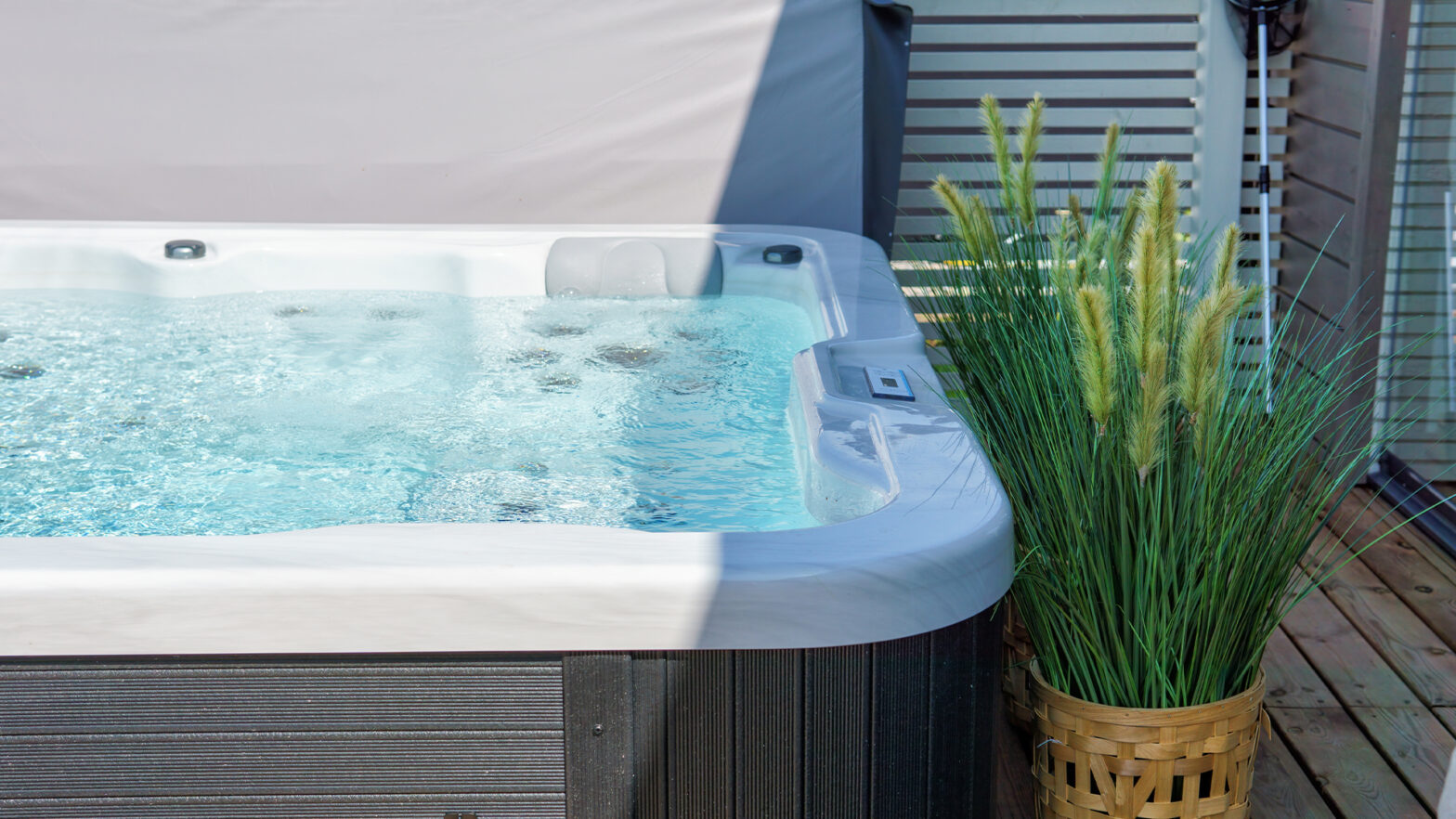
- Buyer demand and number of house sales agreed up 25% since 2023.
- Platinum Spas has teamed up with Abi Hookway to find out how much value spa facilities can add to a home, as well as those that can damage house value.
A recent report found that 90% of Brits find moving house stressful, but what if there was a way to relax, while also upping the value of your house by 5% to 8%?The team at Platinum Spas has spoken with Abi Hookway, a property expert, to get her thoughts on which spa facilities add and take away property value and their potential effect on bills.
This comes after Zoopla found that buyer demand and the number of sales agreed is up 25% since 2023 with the average UK house prices rising 1% year on year, an increase which is expected to continue well into the new year.
For homeowners looking to boost their property’s value, adding spa-like amenities can affect property value. Whether it’s a hot tub sheltered by an oak wood gazebo or transforming a garage into a gym complete with a sauna, how do these luxurious additions impact your home’s market value?
Which spa facilities are best for adding value to a property?
“It depends on what you are using the property for. If the property is used as an Airbnb, guests love amenities like hot tubs and cosy touches that create a memorable stay.
Potential buyers and renters appreciate luxury and relaxation features for serviced apartments, such as onsite gyms, saunas and pools. This touch of indulgence elevates the property’s desirability, which means you can charge a premium.
Create a warm and inviting atmosphere by blending comfortable furnishings with stylish décor.
Hot tubs are a personal preference for a house; unlike extensions, which can add square footage to a home, they don’t add value. A RICS surveyor would not consider it when valuing up because of this.”
Which spa facility can damage your house value?
“Outdoor pools in cooler climates or areas that aren’t common can detract from value. Some buyers see pools as high-maintenance, costly, and potential safety risks, especially for families with young children.
A hot tub that is too large, old, and generally neglected can reduce its appeal – If it appears bulky or in bad condition, buyers may see it as an eyesore or maintenance burden.”
Do these facilities have a significant impact on bills?
“Hot tub energy costs depend on insulation, how often they are used, and the model’s efficiency.
Swimming pools can drastically increase energy costs, particularly if heated year-round. Even without heating, pool filters, pumps, and maintenance can add to electricity and water bills.
Cold plunge pools are not as demanding as swimming pools and hot tubs, but refilling with cold water every time will contribute to your water bill, so it’s something to consider.”
What advice would you give anyone wanting to invest in a hot tub or sauna but worried about the impact this could have when they come to sell?
“Choose eco-friendly, energy-efficient models to reduce running costs. Buyers are increasingly concerned about energy efficiency, and a lower running cost can make the spa feature more attractive.
The hot tub and sauna need to be installed and integrated according to legal requirements. You should be familiarising yourself with local regulations, permits, and tax obligations to ensure compliance.
The idea is to add luxury and ease when purchasing the home, not give buyers a potential maintenance or removal headache. Hot tubs and saunas are niches and not everyone’s cup of tea when selling; you can offer the spa as a negotiable item. This way, if the buyer is uninterested, it can be removed without affecting the property’s overall appeal.
By making thoughtful, energy-efficient choices and ensuring your spa facilities are well-designed, you can enhance your property’s value while minimising potential resale concerns.”




























